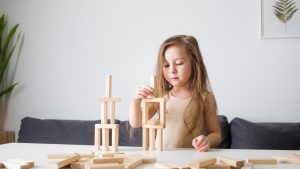5 Emotional Regulation Games for Nurturing Young Hearts
Emotions are an integral part of human life, and learning how to regulate them is a crucial skill for preschoolers.
The early years of a child’s life are the perfect time to begin nurturing emotional intelligence and emotional regulation. This way, they can be emotionally well-adjusted and able to navigate the complexities of later life.
To help make this an engaging activity, we have a list of 5 emotional regulation games that you can try at home with your preschooler!
What are emotional regulation games?
Emotional regulation games are interactive activities designed to help individuals, particularly children, develop and enhance their emotional regulation skills. These games help parents and teachers show preschoolers how to recognise, manage and express their emotions in a healthy and constructive manner.
Why is emotional regulation important for children?
When we teach children emotional regulation from a young age, it helps their social and emotional development. Among the best ways to promote emotional regulation in growing children is through early socialisation.
By interacting with other children and adults, they can practise emotional regulation in real-life situations and develop the following:
Self-identity
Emotional regulation through socialisation allows children to explore their own identities, values and beliefs, which helps them understand themselves more.
Empathy and emotional intelligence
Through social interactions, children also learn to recognise and understand the emotions of others. This, then, helps them connect their own emotions in relation to others’ feelings.
Communication skills
Effective communication skills are also honed by socialisation and help children learn how to express their feelings and thoughts.
What are the benefits of emotional regulation for children?
Aside from the obvious benefits of protecting children’s well-being and avoiding tantrums in preschoolers, improving emotional regulation offers long-term benefits that can help children as they grow up, such as the following:
1. Emotional regulation helps with conflict resolution
It helps children manage disagreements in a non-confrontational manner. At a young age, it’s important to teach them effective communication and problem-solving skills.
2. Kids can build better relationships
When children understand their emotions, they can empathise with others, understand their emotions and respond appropriately.
3. Kids have better academic performance
Emotional regulation can positively impact a child’s academic performance as it allows them to stay focused, manage frustrations and cope with the ups and downs of learning.
5 games for developing emotional regulation
1. Emotions Charades
This game is a twist on the classic charades. Just write different emotions on pieces of paper and have your child act them out without using any words. It’s a fun way to introduce various emotions and see how they understand and express them.
2. Feelings Bingo
Create a bingo card with emotions in each square with your kid – this could also be a fun DIY cutting activity. Write emotions in each square and have your kids mark emotions on their cards as you act them out. This will help them recognise emotions and it’s great for promoting literacy too.
3. Emotional Jenga
Jenga in itself is already a test of emotional regulation (mainly patience!), but you can add a twist by labelling blocks with various emotions. When a player removes a block, they have to make a face that matches the emotion on the block they pulled. This will show you how well they are able to recognise different emotions.
4. Feelings Memory Game
Memory card games are often used to improve vocabulary, but you can also use it as an emotional regulation game. Pairs of cards should feature an emotion word and an image representing that emotion. Participants must match the emotion word with the correct image to win.
5. Emotional Twister
This combines the motor skills development from the classic Twister with emotional regulation. Rather than just focusing on colours, instead have each colour correspond with an emotion. When someone touches that colour, they need to make a face that matches that emotion.
These games are great for practising emotional regulation, so feel free to try them at home or even outdoors so it’s more fun!
Looking for a childcare centre that will nurture your child’s emotional intelligence?
At Little Miracles, we incorporate emotional regulation games and activities for preschoolers in the holistic development of children.
And we make it super fun, too!
Our main priority is to keep kids interested and their minds challenged in an environment where they feel loved, valued, safe and free to develop their full emotional and social potential.
If you’d like to learn more about Little Miracles childcare centres, just check out our website.
To enquire about childcare centre vacancies, feel free to contact us today.



